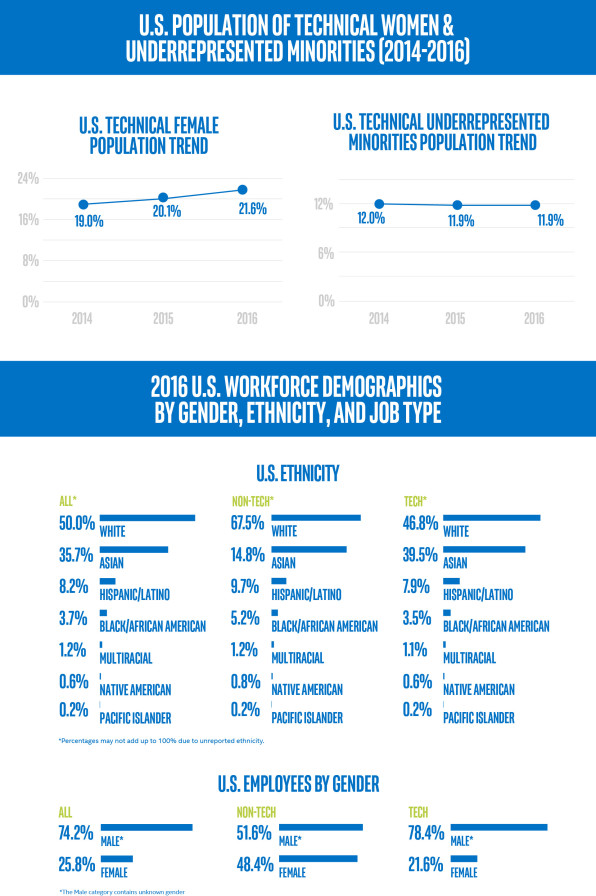Intel Introduces An Anonymous Hotline In Hopes Of Hanging On To Its Diverse Hires
Ever since Intel made a $300 million, five-year investment in diversity and inclusion in 2015, the tech behemoth has kept its promise to release a semi-annual progress report. And while other Silicon Valley companies have recently delayed releasing their diversity numbers, Intel just released its latest statistical analysis of its staff.
Other companies are demurring due to lack of progress, but Danielle Brown, chief diversity and inclusion officer at Intel, says that even incremental gains are important. And in this report, as in its last, some of the improvements look small in terms of percentage of increase. For example, underrepresented minorities in leadership roles increased to 7.1% in 2016 from 6.3% in 2015. Other stats show similar gains.

“We are not doubling in size every year,” says Brown, noting that with 50,000 employees in the U.S. alone, a 2% increase is a large number of people.
Intel also reports where it’s fallen behind. Retention continues to be a bit of an issue, with the number of underrepresented minorities leaving (15.5%) at a greater rate than other staff (15.3%).

Brown notes that a couple of programs have been put in place to deal with staffing problems before they escalate to the point that an employee quits. The WarmLine, a web-based submission form that employees can use to confidentially report problems, was launched in the U.S. last spring. Brown says that so far, upwards of 1,200 employees have used it to report such issues as struggling as new staffer or not being given enough responsibilities. Many of these have resulted in pay raises, promotions, transfers to different departments, or finding employees a sponsor or mentor, says Brown.
The WarmLine also created a data set for the company to see where staff was having issues and placed that within the larger context of the company, Brown says. That’s helped create “playbooks” for individual business units so each could see the analysis of where their own efforts to be more diverse and inclusive were succeeding or falling short.
“This work is hard,” Brown admits. “But we have to be committed for the long haul.”
Correction: A previous version of this article incorrectly referred to the Warmline as a phone line.
Fast Company , Read Full Story
(86)













